
Kód: 08123630
Strategic Analysis of U.S. Special Operations During the Korean Conflict, 1950-1953
Autor Steve A Fondacaro
This study analyzes the strategic effectiveness of special operations conducted by the Far East Command (FECOM) and the Central Intelligence Agency (CIA) in Korea during the Korean Conflict from 1950 to 1953. Each organization&apo ... celý popis
- Jazyk:
 Angličtina
Angličtina - Väzba: Brožovaná
- Počet strán: 148
Nakladateľ: Biblioscholar, 2012
- Viac informácií o knihe

Mohlo by sa vám tiež páčiť
-

Anger is Bliss
28.71 € -

Bela' - A Dog's Life
34.75 € -

Hodgepodge A Cross Section of Stories
17.62 € -
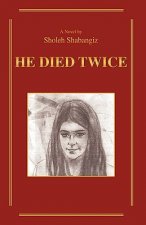
He Died Twice
20.85 € -

Lost Silver of Briffault.
26.29 € -19 % -

...... And that's all She Wrote!!!
20.54 € -2 % -
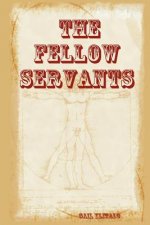
Fellow Servants
16.31 € -

Famous Rides in All Ages and in Many Lands ... Illustrated, Etc.
27.09 € -18 % -

Ceceniello
10.07 € -
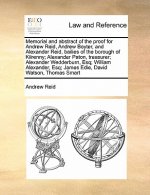
Memorial and Abstract of the Proof for Andrew Reid, Andrew Boyter, and Alexander Reid, Bailies of the Borough of Kilrenny; Alexander Paton, Treasurer;
15.20 € -19 % -

Spirit Seeds
19.44 € -

This Gift From Heaven
13.19 € -
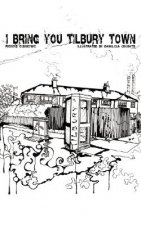
I Bring You Tilbury Town
14.20 € -

Challenging Leadership The Skolkovo Approach
20.54 € -2 %
Darčekový poukaz: Radosť zaručená
- Darujte poukaz v ľubovoľnej hodnote, a my sa postaráme o zvyšok.
- Poukaz sa vzťahuje na všetky produkty v našej ponuke.
- Elektronický poukaz si vytlačíte z e-mailu a môžete ho ihneď darovať.
- Platnosť poukazu je 12 mesiacov od dátumu vystavenia.
Viac informácií o knihe Strategic Analysis of U.S. Special Operations During the Korean Conflict, 1950-1953
Nákupom získate 150 bodov
 Anotácia knihy
Anotácia knihy
This study analyzes the strategic effectiveness of special operations conducted by the Far East Command (FECOM) and the Central Intelligence Agency (CIA) in Korea during the Korean Conflict from 1950 to 1953. Each organization's effectiveness is determined by examining the areas of strategy, organization and operations. Each organization's effectiveness is determined by examining the areas of strategy, organization and operations. Special operations as defined in Joint Chiefs of Staff Publication Number 2, "Unified Action Armed Forces (UNAFF)" was the standard by which operations were selected for examination. The study answers four questions: 1) What were the U.N. Command strategic objectives within the Korean theater, and how did these change?, 2) How these changing strategic objectives development and coordination of special operations objectives, forces and headquarters?, 3) What did U.S. special operations in Korea accomplish strategically? 4) What conclusions can be drawn from U.S. special operations forces' effectiveness or ineffectiveness in Korea? FECOM special operations were limited to partisan operations and psychological operations. The partisans consisted of anti-communist North Koreans organized and led by U.S. cadre beginning in January, 1951. Psychological operations were conducted continuously from July, 1950 by a separate staff element whose capabilities expanded dramatically during the course of the conflict. CIA operations within Korea consisted of intelligence gathering and special (or covert) activities controlled from headquarters in Japan. CIA operations remained autonomous of FECOM control throughout the conflict. The control issue was the source of bureaucratic conflict that inhibited operational coordination between FECOM and CIA throughout the conflict.
 Parametre knihy
Parametre knihy
Zaradenie knihy Knihy po anglicky Society & social sciences Education
59.84 €
- Celý názov: Strategic Analysis of U.S. Special Operations During the Korean Conflict, 1950-1953
- Autor: Steve A Fondacaro
- Jazyk:
 Angličtina
Angličtina - Väzba: Brožovaná
- Počet strán: 148
- EAN: 9781249250012
- ISBN: 9781249250012
- ID: 08123630
- Nakladateľ: Biblioscholar
- Hmotnosť: 277 g
- Rozmery: 246 × 189 × 8 mm
- Dátum vydania: 10. August 2012
Obľúbené z iného súdka
-

Cambridge IGCSE (R) & O Level Complete Physics: Student Book Fourth Edition
42.01 € -

Cambridge IGCSE (R) & O Level Complete Biology: Student Book Fourth Edition
42.01 € -

Cambridge IGCSE (R) & O Level Complete Chemistry: Student Book Fourth Edition
50.97 € -
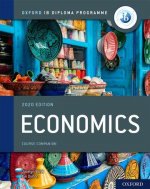
Oxford IB Diploma Programme: IB Economics Course Book
62.26 € -
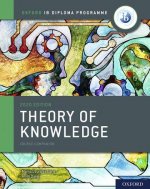
Oxford IB Diploma Programme: IB Theory of Knowledge Course Book
58.03 € -

Oxford International Primary Science Second Edition: Workbook 4
15 € -

Business Partner B1 Workbook
17.62 € -7 % -
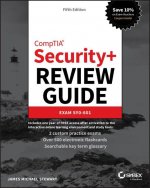
CompTIA Security+ Review Guide - Exam SY0-601
24.78 € -24 % -

AQA French A Level Year 1 and AS
50.37 € -

Cambridge IGCSE (R) & O Level Complete Biology: Print and Enhanced Online Student Book Pack Fourth Edition
61.15 € -

geog.2 Workbook
11.48 € -6 % -

Oxford IB Study Guides: Economics for the IB Diploma
47.75 € -

Teach Reading With Orton-gillingham
18.73 € -10 % -

KS3 Maths 10-Minute Weekly Workouts - Year 7
8.05 € -8 % -
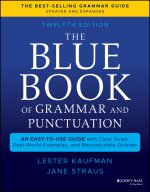
Blue Book of Grammar and Punctuation: An Easy- to-Use Guide with Clear Rules, Real-World Examples , and Reproducible Quizzes, Twelfth Edition
15.10 € -28 % -

Business Partner B1+ Workbook
16.82 € -3 % -

Powerful Teaching: Unleash the Science of Learning
26.19 € -26 % -

Business Partner B2 Workbook
16.82 € -3 % -

Embodied Teen
21.65 € -16 % -
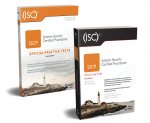
(ISC) SSCP SG & SSCP Practice Test Kit, 3e
65.08 € -28 % -

Growth Mindset Classroom-ready Resource Book
16.21 € -28 % -

AQA A Level Biology Revision Guide
25.58 € -5 % -

UKCAT For Dummies
23.16 € -28 % -

Oxford International Primary Maths Second Edition: Practice Book 1
12.18 € -

Oxford International Primary Science Second Edition: Student Book 1
26.79 € -

Donny's Unauthorized Technical Guide to Harley Davidson 1936 to Present
47.95 € -16 % -
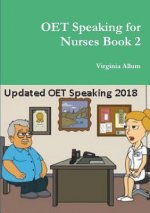
OET Speaking for Nurses Book 2
11.58 € -2 % -
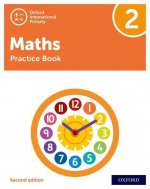
Oxford International Primary Maths Second Edition: Practice Book 2
12.18 € -

Edexcel International GCSE Chemistry Student Book Second Edition
31.63 € -14 % -

Cambridge IGCSE (R) & O Level Complete Physics: Print and Enhanced Online Student Book Pack Fourth Edition
62.96 € -

OET Speaking For Nurses Book 1
12.79 € -

Walk Your Talk; Tools and Theories To Share Nonviolent Communication
29.31 € -
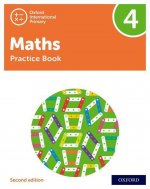
Oxford International Primary Maths Second Edition: Practice Book 3
13.59 € -

Social Skills Activities for Secondary Students wi th Special Needs, Third Edition
26.39 € -21 % -

geog.1 5th edition Workbook Answer Book
56.41 € -

AQA GCSE German Foundation Practice Papers
15.30 € -
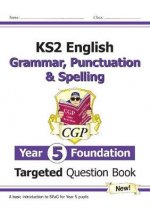
New KS2 English Year 5 Foundation Grammar, Punctuation & Spelling Targeted Question Book w/Answers
8.96 € -5 % -

Cambridge IGCSE (R) & O Level Complete Chemistry: Print and Enhanced Online Student Book Pack Fourth Edition
62.96 € -

Making Escape Rooms for Educational Purposes
18.73 € -

New KS2 English Year 4 Foundation Grammar, Punctuation & Spelling Targeted Question Book w/Answers
8.96 € -5 % -

240 Vocabulary Words Kids Need to Know: Grade 3
11.78 € -17 % -

Education in the New Age
12.89 € -
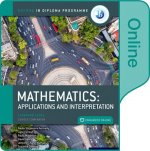
Oxford IB Diploma Programme: Oxford IB Diploma Programme: IB Mathematics: applications and interpretation Standard Level Enhanced Online Course Book
95.20 € -

Oxford International Primary Maths Second Edition: Practice Book 5
16.11 € -

OET Preparation
9.66 € -

Speed and Accuracy: Multiplication
8.55 € -
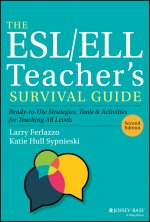
ESL/ELL Teacher's Survival Guide: Ready-to-Use Strategies, Tools, and Activities for Teaching En glish Language Learners of All Levels, 2nd Edition
29.71 € -21 % -

KS3 Maths 10-Minute Weekly Workouts - Year 8
8.05 € -8 % -

Speed and Accuracy: Division
8.55 €
Osobný odber Bratislava a 2642 dalších
Copyright ©2008-24 najlacnejsie-knihy.sk Všetky práva vyhradenéSúkromieCookies



 21 miliónov titulov
21 miliónov titulov Vrátenie do mesiaca
Vrátenie do mesiaca 02/210 210 99 (8-15.30h)
02/210 210 99 (8-15.30h)